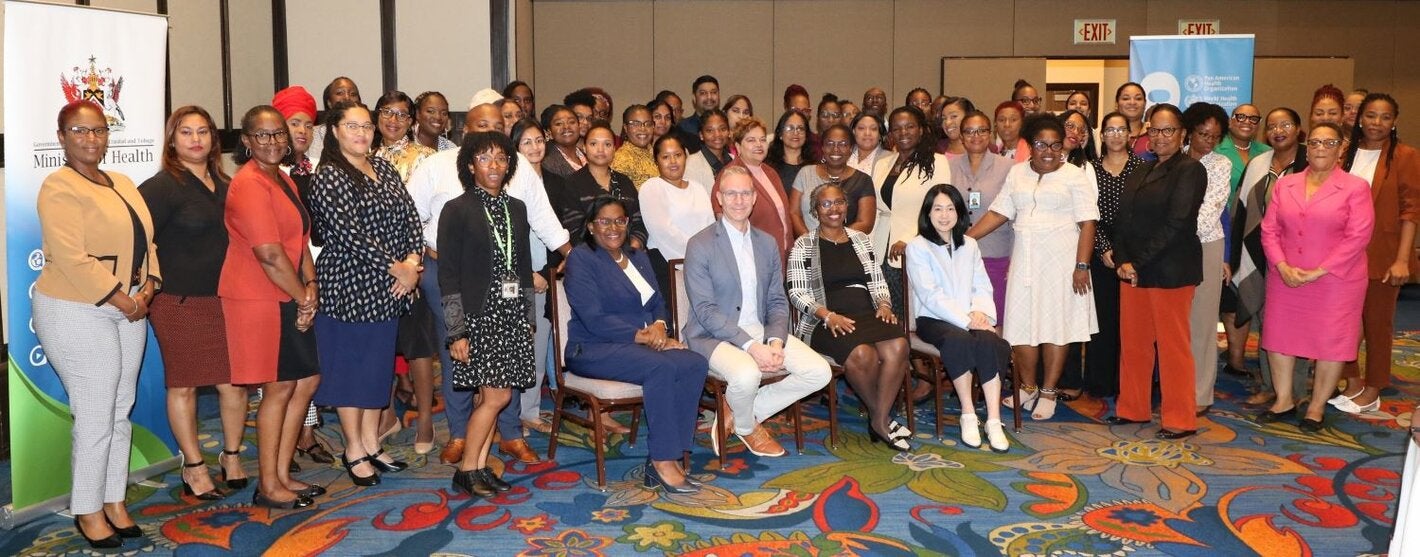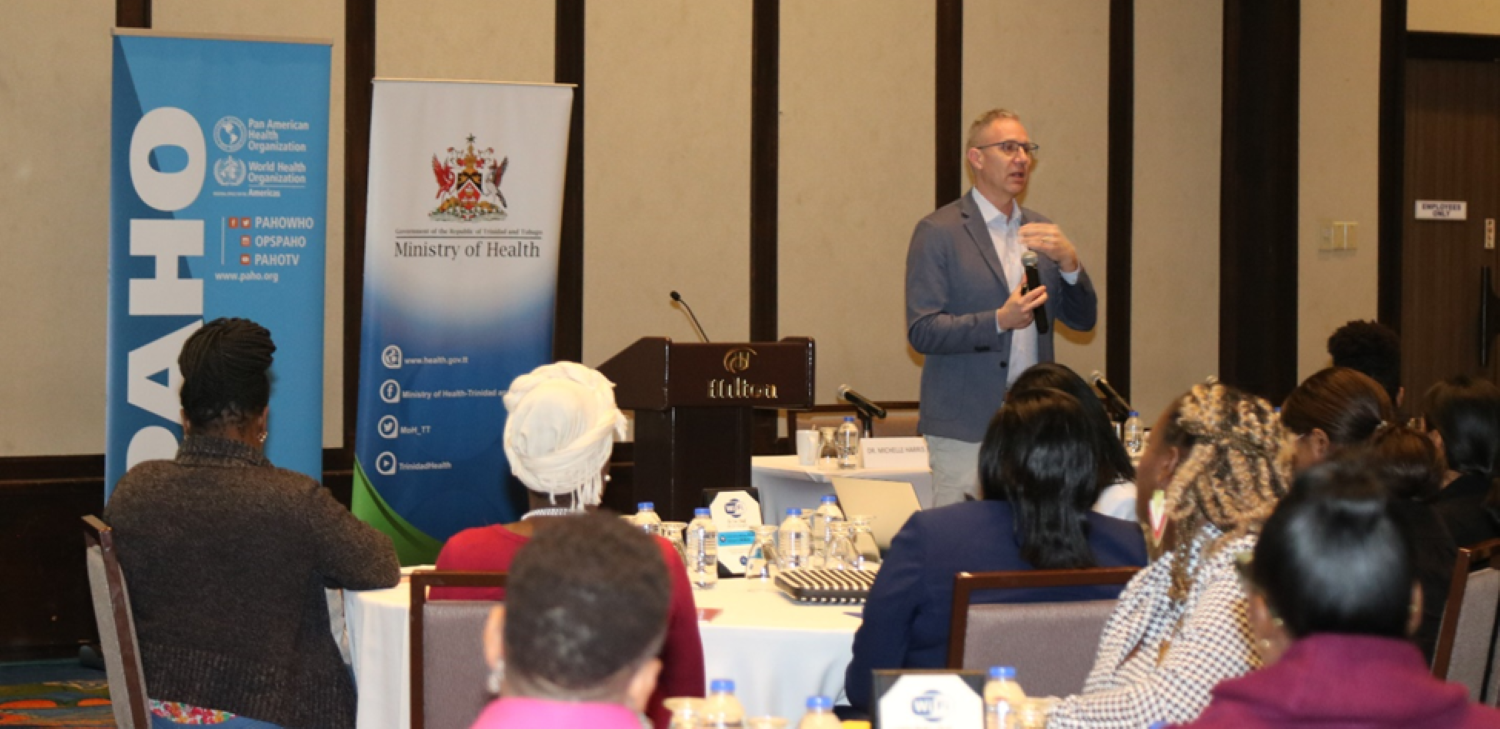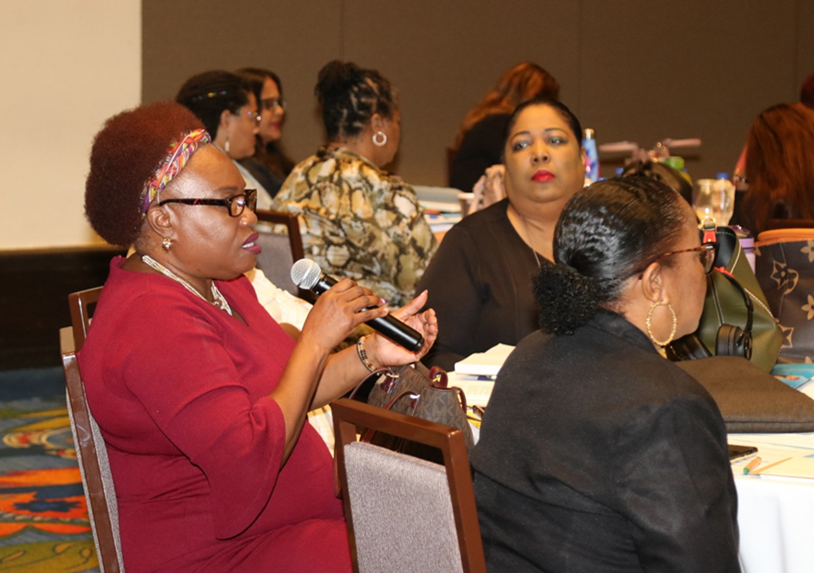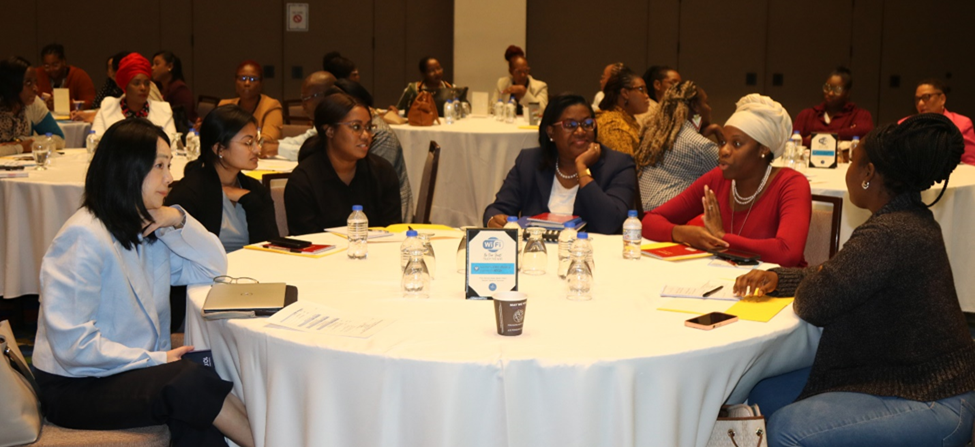
Port of Spain, 27 February 2024: The PAHO/WHO TTO country office collaborated with the Ministry of Health to convene a three-day Mental Health Literacy in Schools Trainer of Trainers’ workshop for 58 representatives from both the Ministry of Education and Ministry of Health, including the five Regional Health Authorities.
Dr. Michelle Harris pointed out in her opening remarks that globally, 1 in 5 young individuals experience a mental illness before reaching the age of 25, with 70% of such conditions manifesting by age 14 and often remaining undiagnosed for a decade. Adolescence represents a critical period for advancing mental health awareness, prevention, timely identification, and intervention, given the potential for successful treatment of many of these conditions.
Through collaborative efforts between PAHO/WHO and Alberta Health Services, we have successfully enlisted the expertise of two seasoned trainers to facilitate this Trainer of Trainers’ workshop: Mr. Andrew Baxter, Mental Health Literacy Team Lead, and Dr. Yifeng Wei, Assistant Professor, Department of Psychiatry, University of Alberta.
The workshop participants are expected to effectively disseminate the insights gained during this workshop to other educators and individuals closely associated with educational institutions, including go-to educators such as extracurricular instructors, security personnel, and leaders within faith-based communities.
Mr. Baxter outlined the Four Components of Mental Health Literacy, which include understanding how to obtain and maintain good mental health, identifying mental disorders and their treatments, reducing stigma, and enhancing help-seeking efficacy. He indicated that mental health literacy provides the knowledge and understanding that help people become responsible, effective, and successful in living full and healthy lives. The School Mental Health Literacy program has been successfully implemented in several school districts across Canada as well as in countries across the world, including in the Caribbean.
One participant reiterated the need for the provision of comprehensive training for educators to address the nuanced mental health needs of young learners and the imperative to contextualize data to align with the unique sociocultural landscape of the Caribbean region, thereby sensitively addressing mental health concerns across diverse racial and religious backgrounds.
The trainer emphasized the workshop's significance not merely as an isolated event but as a transformative tool poised to catalyze the implementation of insights gleaned over the course of the intensive three-day program.






